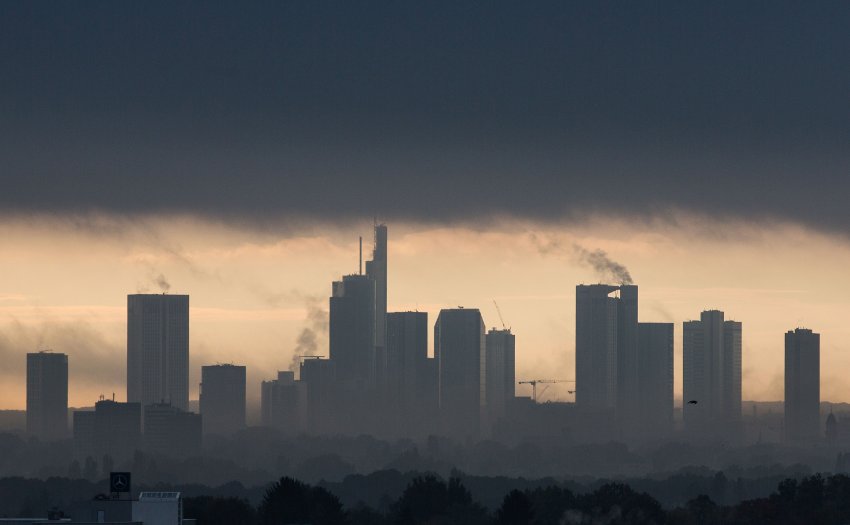Translated from German. Originally appeared on Spiegel Online on Friday, April 15th
The number of refugees coming to Germany are dwindling, the right to asylum has been tightened, and integration issues are being addressed. So what reason is there to rant against foreigners, to lament over Merkel’s political course or her failure to change it or to complain about the “lying press”? At this point German right wing leader Frauke Petry along with Donald Trump and Marine Le Pen could pack up and head for a lonely island. Well, unless: it’s not the worries over the refugees that caused the increase of followers of right-wing populists these days.
Quite possible. Don’t the French have Le Pen even though their numbers of refugees don’t even compare to those in Germany; and don’t the Americans have their Donald Trump – without a chancellor Angela Merkel to blame for a wrong attitude towards refugees? Countries presently experiencing a shift to the right share one commonality which points to something deeper: In all these countries the crisis that emerged in 2007 still lingers on in one way or another. Losses that were incurred throughout the crisis are paid off today in part by those who often do not even have an idea of what hedge funds and derivatives are.
In an impressive historical study (PDF) Bonn-based economist Moritz Schularick and two of his colleagues recently found that staunch right-wing parties systematically gain followers after such crashes. This applies to Germany after 1929, but also for banking crises that occurred, for example, in Scandinavia in the 1990s. The experts analyzed more than a hundred financial debacles that have occurred in 20 countries since 1870. Their findings: Right-wing parties gained an average of 30 percent in the first post-crash elections. This seems plausible: In France the extreme right-wing Front National had its first big rise in the wake of the franc crisis in the 1980s. In Germany the Alternative für Deutschland emerged during the Eurozone crisis.
A cross-check by Schularick et al. shows that no shift to the right occurred in the wake of recessions in which no financial crashes were experienced. In other words, the banks obviously play a part in this phenomenon.
One might argue that the financial sector does not rank so highly on the country’s “hate list”. True, but it’s also the case that structured financial products or integration problems in derivatives don’t as readily serve as outlets of anger. Nevertheless, what was bequeathed by the financial crisis could, from a collective point of view, reveal much more about the reasons why there is so much dissatisfaction with politicians and elites — much more so than could ever be attributed to a refugee crisis alone.
According to Forsa opinion surveys, only 25 percent of Germans believe that ordinary citizens benefit most from the Euro, but 81 percent believe that they are adversely affected most by the Eurozone crisis. Welcome back, disillusionment! More so, since at least the second part in this assumption is not far off the mark.
The bill is paid by savers
Typically, in the course of a financial crisis banks will be rescued, like it or not. They are rescued even though they have played their part in creating the problem. They are rescued because without banks nothing works and because we know from experience that a non-rescue might result in economic collapse. The problem is that bank bailouts are costly for the government and this often leads to higher taxes or cutting pensions. People start putting two and two together.
Then politicians have two neat positions to choose from: with the panic in the financial markets in mind to act as the benevolent uncle and rescue the banking institutions or to refrain from doing so and thus risk an even greater crisis with ensuing mass unemployment and as a consequence to be voted out of office – no desirable option either. Politicians rarely appear as helpless as they do in such crises (admittedly, some of them don’t require a financial crisis for this). No wonder politicians are losing esteem.
To make matters worse, crashes typically are preceded by euphoric times when bundles of money were made by a few, times when more money was invested in speculations than in new plants and secure jobs. Rarely had the wealth gap been larger than at the time of the crashes in 1929 and 2008 - not much has changed since then. The wealthiest ten percent even in Germany own nearly two thirds of the assets, while 40 percent of Germans own nothing – a reality after three decades of financial globalization. A sense of cognitive dissonance is arising amongst the people.
What’s more, for savers interest rates seem to be a thing of the past. Even this is a typical after-effect of large crashes, because in a debt crisis there is hardly any demand for new loans, and little investment is made by the economy. Zero interest rates are not an invention of the often scolded Mario Draghi, they are found in the United States as well, in Japan and in other crash countries. The bill is in part paid by those (savers) who never benefited from the boom.
Plenty of Room for Crackpots
All this obviously helps in the hands of the heralds of simple worldviews rather than the specialists of financial reforms; particularly since old economic wisdom indeed suddenly seems absurd in such crises - like the mantra that (financial) markets somehow always work efficiently as has been preached by the majority of economists. In the 1930s the financial crash led to major rethinking and to moving away from overly naive liberalism.
The hitch in the matter is that on the way there the trust in the old tribe of experts implodes without it being replaced by another. There is plenty of room for crackpots who fill the vacuum with mistaken theories and doctrines of salvation. It is rather unlikely that Donald Trump, shall we say, wants to eliminate the concentration of wealth. He rather, like in a daze, makes a racket about Mexicans and Marxists.
The financial debacle and its aftermath certainly cannot explain everything, but it does explain at least much the discontent that the Trumps, the Le Pens and the Petrys today exploit their own ends: topics like zero interest, overburdened politicians, extreme inequality or business experts who have lost their credibility; it is just that they have no solutions for these matters at all.
It is not enough to erect fences to block Balkan routes or to tighten asylum laws to make people happy again and politicians respected. Instead, reforms are necessary which ensure that incomes rise for everyone, that banks are back into the business of being service providers, or that the economy expands so it spreads more money to the people by design. Then perhaps people would not be so angry at everything. But this is no job for Big Talkers.







